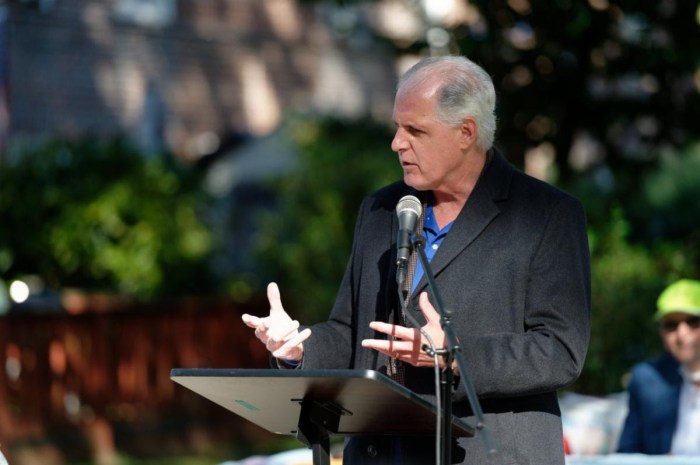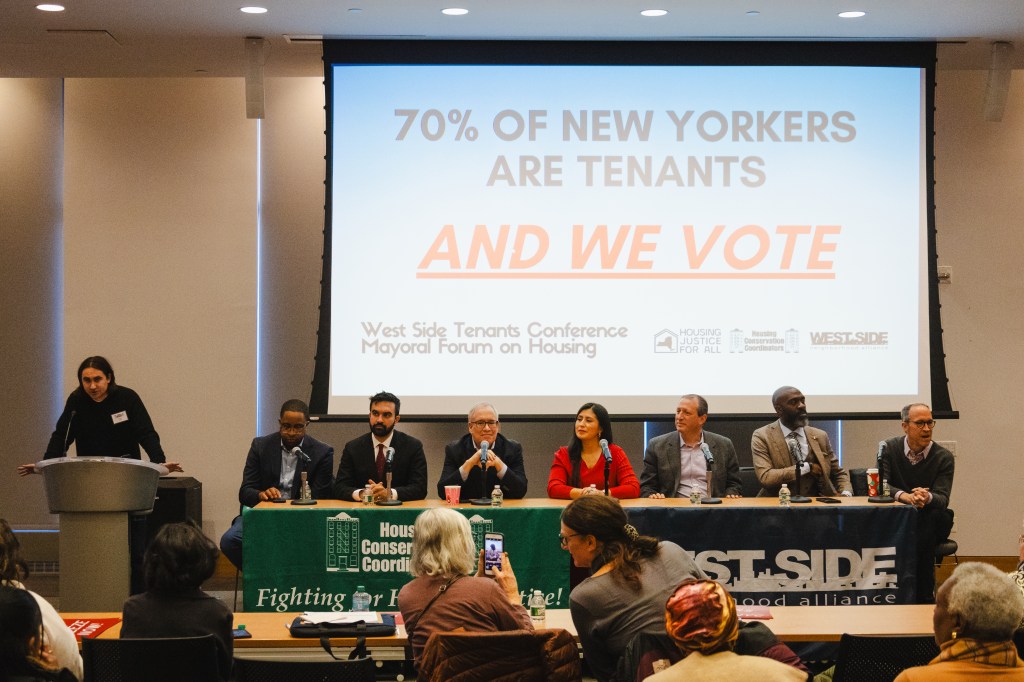By Charles Hack
Fair ground operators must license their big dippers and merry-go-rounds or face closure, said Buildings Department inspection officials recently. Even block party organizers need to make sure their bouncy castles display a current green Amusement Ride Inspection Certificate, showing when the rides were last inspected. This was the message from the New York City Department of Consumer Affairs (DCA) and Department of Buildings (DOB) inspectors who spoke at St. Athanasius Church, on 2154 61st Street. “Inspections are colossally important, not only for the safety of the public, but because people won’t come if it’s not safe.” said Msgr. David Cassato, who has held a street fair for the Feast of St. Anthony at St. Athanasius Church for the last four years. Each time a fair ground operator sets up a ride such as a Ferris wheel, swings, tilt-a-whirls or carousels, they must have the equipment officially inspected by the DOB Elevators Division and receive a license from the DCA. So far this season the DCA has processed more than 160 applications for temporary and inflatable rides at streets fairs, carnivals and block parties, according to city officials. The DOB carries out around 1,200 inspections during the season. Operators of portable amusement rides are required to have one-year license from the DCA and carry insurance. Permanent rides such as the Cyclone at Coney Island are inspected twice during the year, while traveling rides are inspected each time they are set up. The DOB also carries out random inspections, checking to see that operators have green cards and are operating the machines as they should be. Operators who operated their ride without a license face up to $100 in fines and could be closed down. “As long as you do the right thing, you will be fine,” said Bill Penn, the manager of Toy Store Amusement, whose fair ground was set up at the St. Athanasius Church school yard for the Feast of St. Anthony. “They do what is necessary to make sure it is safe for the public.” But he said the licensing requirements eat up his operating profits of the machines. In addition to the $100 DCA license required for each machine, operators must pay a DOB inspection fee of $50 each time they set up. He must also pay an electrical contractor a further $100. With a requirement for $1 million worth of insurance, the premium runs at around $50,000 to $60,000 a year, he said. Most accidents are minor trip and fall accidents, according to Patricia J. Lancaster, the Commissioner for the DOB. Last year there were three such reported accidents, she said. Riders should take particular care getting on and off the ride, Lancaster said. The last time New York City had a fatality on an amusement ride was about five-years ago, officials said, when a customer stood up on the ride. The DOB also recommends that passengers take a few precautions before getting on a ride. For example, passengers are advised to alert the operator or even the police if something looks abnormal about the ride. It is also recommend that customers notify the police if an operator appears intoxicated. Passengers should take care to read restrictions such as height and weight limits. They must also wear any safety equipment or restraints provided, and read and follow safety instructions provided. The city also says that passengers should never stand up on a ride, or go on a ride while intoxicated. Inspectors receive at least 40 hours of training and have to pass a test, said DOB inspector Raymond Martinsen, who recently went with the other nine amusement-ride inspectors from New York to Florida — home of Disney World — for intensive training.

































